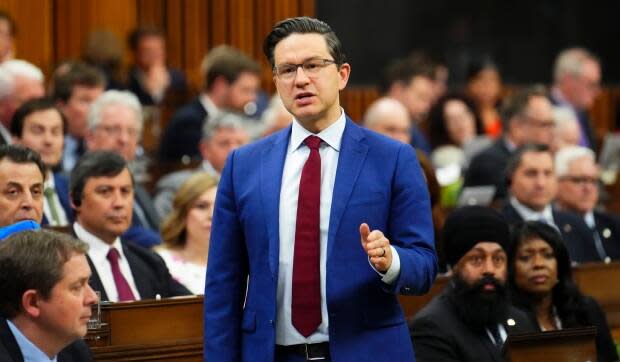Justice minister says federal government could not go much further on bail reform

Canada's justice minister says the federal government could not have made its recently proposed bail reform much stricter, given constitutional constraints.
In an interview on Rosemary Barton Live airing Sunday, David Lametti said his government had only a very narrow margin to work with when it comes to infringing upon Canadians' right to bail under the Charter of Rights and Freedoms.
"My honest answer is that I don't think you can go further," Lametti told CBC chief political correspondent Rosemary Barton.
"What we've done here is target a really narrow set of offences: repeat violent offenders with a weapon," along with some firearms offences," he said.
"By staying in that very, very narrow lane, we feel that we're quite compliant with the Charter, but we're also addressing a number of very specific needs." The Liberal government implemented more comprehensive bail reform earlier in its tenure, responding to rulings from the Supreme Court of Canada.
WATCH | Justice minister addresses new bail reform legislation:
The new piece of legislation, Bill C-48, would change rules to make it harder for some offenders charged with violent crimes involving a weapon and who have similar past convictions to get bail. It would do so by implementing a "reverse onus" provision.
In most cases, prosecutors must show that accused persons are either a flight risk, a danger to the public or that detention is needed to "maintain confidence in the administration of justice" in order to prevent release on bail. Reverse onus shifts the burden to accused persons.
The new bill responds to the calls of police associations and premiers across the country, who have urged Ottawa to introduce reform — especially after the killings of several police officers in recent months.
Lametti said the bill was developed in consultations with groups across the country. He added that he was committed to making sure the bail reform changes did not have negative consequences for Black and Indigenous people, and the efforts to solve the issue of their overrepresentation in the criminal justice system.
Welcomed by premiers, police
After a long period of decline, violent crime has been on the rise in Canada since about 2014, according to Statistics Canada.
The bill has met with a range of responses. The union representing RCMP officers called the measure a "good first step," and it was similarly welcomed by the Canadian Association of Chiefs of Police.
The Canadian Civil Liberties Association said, "We believe that every person in Canada deserves to feel safe in their community but this bill will not accomplish that. It is possible to protect the right to reasonable bail and ensure public safety. The federal government can and must do better than Bill C-48."
Karen Kuwica, president of the Nanaimo Area Public Safety Association, told Barton in a separate interview airing Sunday that the bill was "encouraging, it's a step in the right direction ... but on a community level, I'm not sure that it's going to make a significant change."
Kuwica said more needs to be done, in both the justice system and social services, to address a "hat trick of social crises" that includes the opioid epidemic, the lack of affordable housing and mental health.
The bill has been harshly criticized by the leader of the Official Opposition, who argues it does not go far enough and will not address the safety concerns of Canadians.

Conservative Leader Pierre Poilievre has proposed a stricter approach to bail, in which people convicted of violent offences who are arrested on a new charge would be denied bail throughout the course of their trial and potential sentence.
"Not bail, and not early parole. That's common sense," he said earlier this week.
"Major overhaul is needed in the catch-and-release policies that [Prime Minister Justin] Trudeau and the minister put forward in the last number of years. This will not fix that problem."
Legal experts, though, question the constitutionality of Poilievre's proposed approach.
The idea "completely ignores the foundational principles of our criminal justice system," Nicole Myers, a Queen's University sociologist with expertise in bail and pretrial detention, told The Canadian Press earlier this week.


